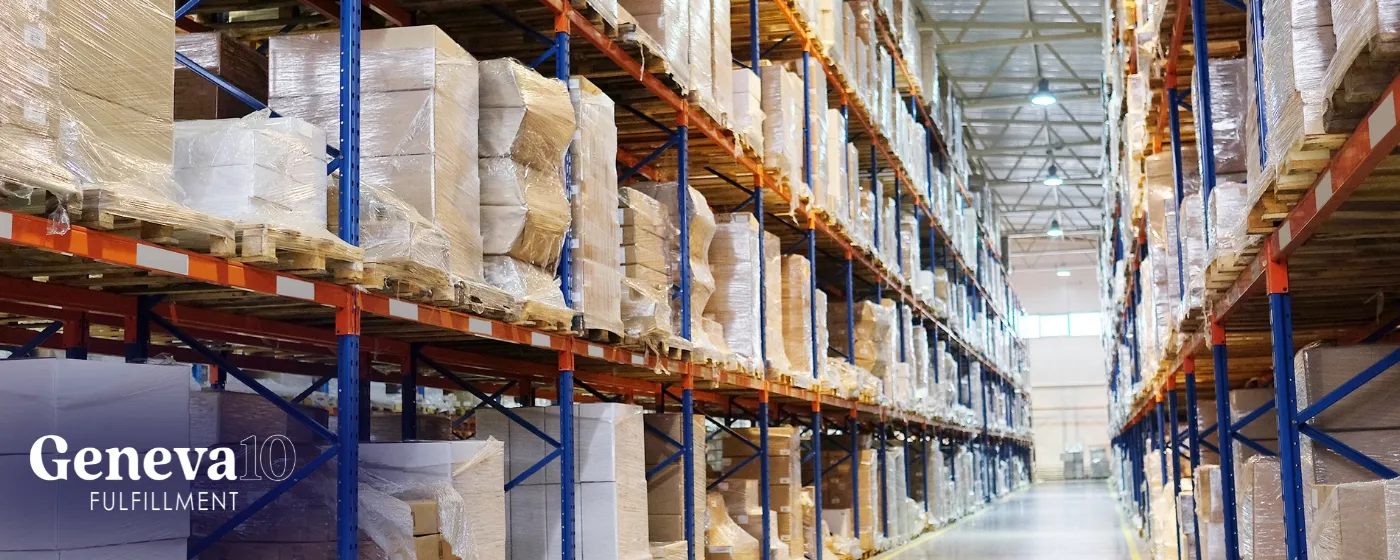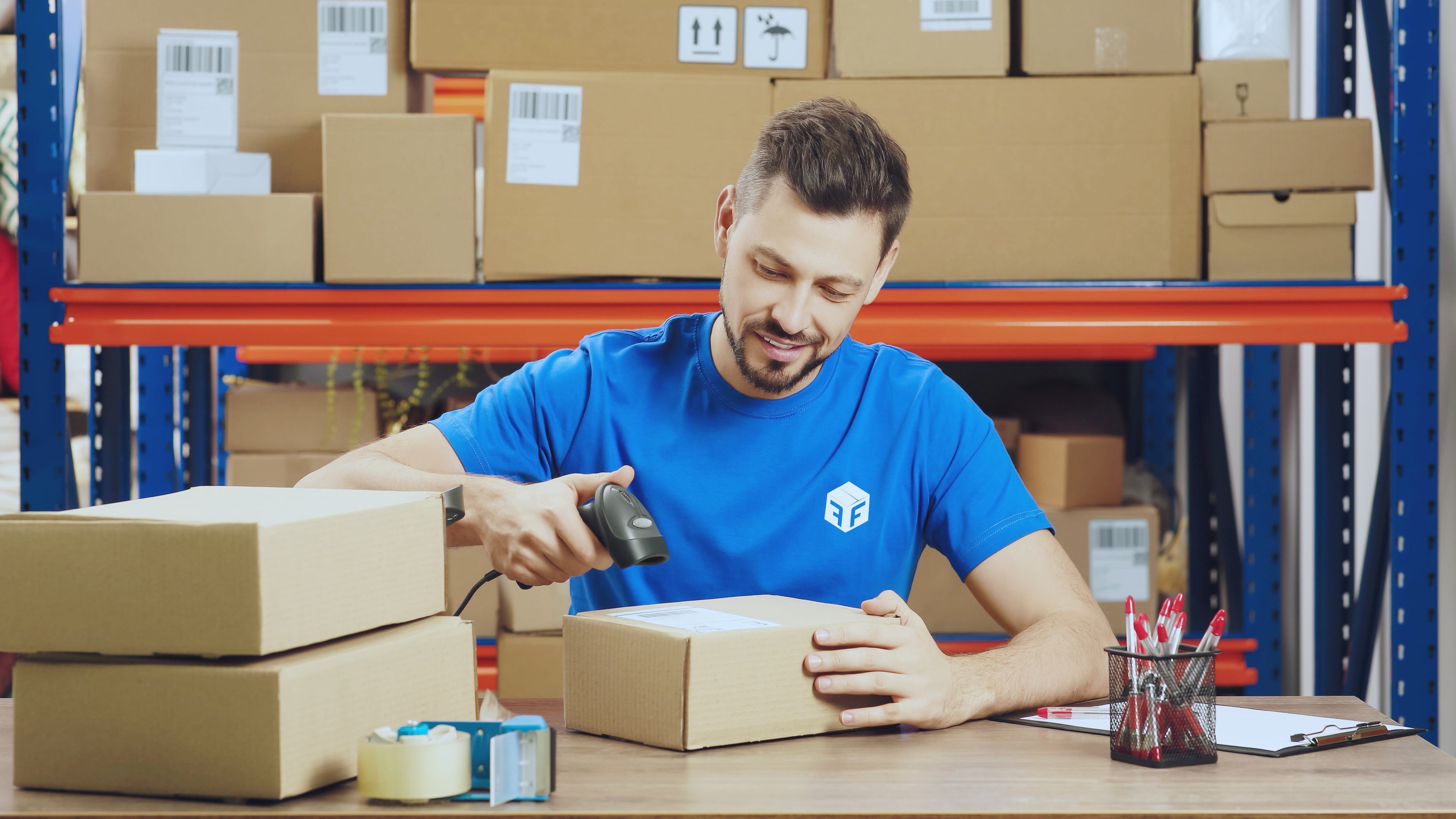เหตุใดความแม่นยำจึงมีความสำคัญในผลิตภัณฑ์ความงาม การปฏิบัติตาม
ต้นทุนสูงของการรั่วไหลและการแตกหัก
การรักษาระดับความแม่นยำในการปฏิบัติตามคำสั่งสำหรับผลิตภัณฑ์ความงาม มีความสำคัญอย่างยิ่งต่อการปกป้องผลกำไรของแบรนด์ สินค้าที่ถูกจัดการอย่างไม่เหมาะสม โดยเฉพาะผลิตภัณฑ์ดูแลผิวและเครื่องสำอางที่มีความเปราะบาง อาจนำไปสู่การรั่วไหลหรือแตกหัก ซึ่งมักสร้างความเสียหายเกินกว่า 20% ของมูลค่าสินค้า เพื่อช่วยให้แบรนด์หลีกเลี่ยงปัญหาที่ก่อให้เกิดต้นทุนสูงเหล่านี้ FF โลจิสติกส์ ใช้มาตรการจัดการพิเศษและเทคนิคในการบรรจุหีบห่อที่ช่วยปกป้องผลิตภัณฑ์ โดยออกแบบมาโดยเฉพาะสำหรับผลิตภัณฑ์ความงาม .ระดับการดูแลนี้ไม่เพียงแต่ช่วยลดความเสียหายระหว่างการขนส่ง แต่ยังรักษาประสบการณ์ของลูกค้าไว้ได้ ผลกระทบจากความเสียหายทางตรงที่เป็นตัวเงินนั้นสำคัญ แต่ผลกระทบที่ตามมาจากการคืนสินค้าและการไม่พอใจของลูกค้ายิ่งส่งผลระยะยาวต่อความภักดีในแบรนด์ เพราะลูกค้าที่ไม่พึงพอใจมักจะไม่ซื้อซ้ำหรือแนะนำสินค้าให้ผู้อื่น การศึกษากรณีจากอุตสาหกรรมแสดงให้เห็นอย่างต่อเนื่องว่า การจัดการที่ไม่ดีพอถือเป็นความท้าทายหลักประการหนึ่งในธุรกิจความงามแบบออนไลน์ ซึ่งขัดขวางการเติบโตของแบรนด์ต่าง ๆ มาโดยตลอด
ความเชื่อมั่นจากลูกค้าและชื่อเสียงของแบรนด์กำลังตกอยู่ในความเสี่ยง
ในอุตสาหกรรมความงาม การรับรู้ของลูกค้ามีความสำคัญเป็นอันดับแรก โดยมีรายงานว่าผู้บริโภคถึง 83% ระบุว่าความสมบูรณ์ของผลิตภัณฑ์เป็นปัจจัยสำคัญที่มีอิทธิพลต่อความภักดีของพวกเขา ซึ่งทำให้ความแม่นยำในการดำเนินการ fulfillment ไม่ใช่แค่เรื่องโลจิสติกส์เท่านั้น แต่ยังเกี่ยวข้องกับการรักษาน้ำใจและความเชื่อมั่นของลูกค้าไว้ด้วย ความผิดพลาดในการบรรจุภัณฑ์หรือผลิตภัณฑ์เสียหายสามารถกระตุ้นประสบการณ์เชิงลบ ซึ่งอาจขยายวงกว้างได้ง่ายผ่านโซเชียลมีเดีย และอาจส่งผลกระทบต่อภาพลักษณ์ของแบรนด์ได้ การสำรวจชี้ให้เห็นว่าลูกค้าประมาณ 60% มีแนวโน้มที่จะกลับมาใช้แบรนด์เดิมซ้ำ หากแบรนด์สามารถรักษาความสมบูรณ์ของผลิตภัณฑ์ได้อย่างสม่ำเสมอ ซึ่งเน้นย้ำถึงบทบาทสำคัญของความแม่นยำในการบริหารจัดการภาพลักษณ์ของแบรนด์ในระยะยาว ข้อมูลเหล่านี้แสดงให้เห็นอย่างชัดเจนว่าทำไมแบรนด์ต้องลงทุนในกระบวนการทำงาน fulfillment ที่แข็งแกร่ง เพื่อปกป้องภาพลักษณ์และสร้างความภักดีจากลูกค้า
บรรจุภัณฑ์กันรั่วและทนแรงกระแทก
วัสดุพิเศษสำหรับของเหลวและชิ้นส่วนเปราะ
การเลือกวัสดุที่เหมาะสมสำหรับบรรจุภัณฑ์ของเหลวและสินค้าความงามที่เปราะบางนั้นมีความสำคัญอย่างมากในการป้องกันการรั่วไหลและการแตกหัก วัสดุเช่น พอลิเอทิลีนความหนาแน่นสูง (HDPE) และพอลิเอทิลีนเทเรฟทาเลต (PET) มักถูกนำมาใช้เนื่องจากมีความทนทานและความสามารถในการกันกระแทกที่ดี การศึกษาวิจัยแสดงให้เห็นว่า นวัตกรรมในวัสดุเหล่านี้สามารถลดเหตุการณ์การรั่วไหลได้มากถึง 30% ซึ่งแสดงให้เห็นถึงประสิทธิภาพของวัสดุ สำหรับผลิตภัณฑ์ความงามแล้ว การเลือกใช้วัสดุเหล่านี้ไม่เพียงแต่ช่วยยืดอายุการเก็บรักษา แต่ยังช่วยรักษาความสวยงามที่จำเป็นในการดึงดูดและรักษาลูกค้าไว้ได้
การสมดุลระหว่างบรรจุภัณฑ์ที่เป็นมิตรต่อสิ่งแวดล้อมและบรรจุภัณฑ์ป้องกัน
การหาความสมดุลระหว่างบรรจุภัณฑ์ที่เป็นมิตรต่อสิ่งแวดล้อมกับองค์ประกอบที่ช่วยในการป้องกันสินค้า ถือเป็นเรื่องที่มีความสำคัญมากขึ้นในอุตสาหกรรมความงาม ด้วยผู้บริโภคถึง 72% ที่แสดงความชอบบรรจุภัณฑ์ที่ยั่งยืน ทำให้แบรนด์ต่าง ๆ ต้องเผชิญกับแรงกดดันในการนวัตกรรม แม้ว่าบรรจุภัณฑ์ที่ช่วยในการป้องกันจะรับประกันการส่งมอบสินค้าอย่างปลอดภัย แต่บรรจุภัณฑ์ที่เป็นมิตรต่อสิ่งแวดล้อมกลับสามารถตอบสนองความกังวลด้านสิ่งแวดล้อมของผู้บริโภค แบรนด์อย่าง Lush ได้ผนวกรวมวัสดุที่สามารถย่อยสลายได้ทางชีวภาพในขณะที่ยังคงมาตรฐานการป้องกันสินค้าไว้ได้สูง ซึ่งแสดงให้เห็นว่าความยั่งยืนและความปลอดภัยสามารถอยู่ร่วมกันได้โดยไม่กระทบต่อคุณภาพของผลิตภัณฑ์
ชิ้นส่วนพิเศษสำหรับการจัดส่งสินค้าหลายชิ้น
แผ่นรองแบบพิเศษในบรรจุภัณฑ์มีบทบาทสำคัญในการยึดตำแหน่งผลิตภัณฑ์เพื่อความงามหลายชิ้นให้แน่นหนาขณะขนส่ง โซลูชันที่ถูกออกแบบมาเฉพาะเหล่านี้มีจุดประสงค์เพื่อรักษาผลิตภัณฑ์ให้อยู่ในตำแหน่งที่กำหนด ลดการเคลื่อนที่และป้องกันความเสียหายที่อาจเกิดขึ้น สถิติแสดงให้เห็นว่าการใช้แผ่นรองที่เหมาะสมสามารถลดอัตราความเสียหายได้มากกว่า 15% ต้นทุนที่ประหยัดได้จากการลดการส่งคืนสินค้าและระดับความพึงพอใจของลูกค้าที่เพิ่มขึ้น จากการที่สินค้าถึงมือลูกค้าโดยไม่เสียหายตามที่คาดหวัง แสดงให้เห็นถึงความสำคัญของการลงทุนในบรรจุภัณฑ์คุณภาพสูง

มาตรการควบคุมคุณภาพเพื่อรักษาความสมบูรณ์ของผลิตภัณฑ์
ระบบตรวจสอบความเสียหายสามขั้นตอน
การใช้ระบบตรวจสอบความเสียหายสามขั้นตอนช่วยรับประกันคุณภาพของผลิตภัณฑ์ความงามก่อนจัดส่ง สิ่งนี้รวมถึงกระบวนการที่ละเอียดซึ่งมี 3 ขั้นตอน ได้แก่ การตรวจสอบด้วยสายตามขั้นต้น การประเมินสภาพโดยละเอียด และการตรวจเช็กสุดท้ายด้วยเทคโนโลยีช่วยเหลือ บริษัทที่นำแนวทางเช่นนี้มาใช้รายงานว่ามีจำนวนการจัดส่งที่สมบูรณ์เพิ่มขึ้นถึง 25% โดยการผสานเทคโนโลยีขั้นสูงอย่างการสแกนอัตโนมัติและการตรวจจับตำหนิด้วยปัญญาประดิษฐ์ (AI) ไม่เพียงแต่ช่วยให้กระบวนการทำงานคล่องตัวมากขึ้นเท่านั้น แต่ยังเพิ่มประสิทธิภาพโดยรวมด้วย การใช้กระบวนการตรวจสอบความเสียหายที่เข้มงวดเป็นองค์ประกอบสำคัญในการรักษาคุณภาพของผลิตภัณฑ์และความพึงพอใจของลูกค้า
กระบวนการตรวจสอบวันหมดอายุ
ในอุตสาหกรรมความงาม การตรวจสอบให้แน่ใจว่าผลิตภัณฑ์ที่ถึงมือผู้บริโภคนั้นมีความสดใหม่เป็นสิ่งสำคัญอย่างยิ่ง ทำให้กระบวนการตรวจสอบวันหมดอายุของผลิตภัณฑ์มีความสำคัญมาก โดยการติดตามวันหมดอายุอย่างละเอียด บริษัทต่าง ๆ สามารถลดของเสียและป้องกันการจัดส่งสินค้าที่หมดอายุได้ สถิติแสดงให้เห็นว่าผลิตภัณฑ์ที่หมดอายุสามารถคิดเป็นสัดส่วนสูงถึง 40% ของการคืนสินค้า ซึ่งแสดงให้เห็นถึงผลกระทบทางการเงินจากการละเลยขั้นตอนนี้ การผสานกระบวนการตรวจสอบเข้ากับระบบจัดการสินค้าคงคลัง ระบบอัตโนมัติก็สามารถช่วยในการติดตามแบบเรียลไทม์ ลดข้อผิดพลาดของมนุษย์ และรับประกันว่ามีเพียงผลิตภัณฑ์ที่ยังไม่หมดอายุเท่านั้นที่ถูกจัดส่งออกไป สิ่งนี้ไม่เพียงแต่ช่วยประหยัดทรัพยากรของบริษัท แต่ยังสร้างความไว้วางใจจากลูกค้าที่พึ่งพาความสดใหม่ของผลิตภัณฑ์เพื่อความปลอดภัยและความมีประสิทธิภาพ
การติดตามเลขที่ผลิตเพื่อเตรียมพร้อมสำหรับการเรียกคืนสินค้า
การติดตามแบบแบตช์มีความสำคัญอย่างยิ่งต่อการเตรียมความพร้อมในการเรียกคืนสินค้าอย่างรวดเร็วในอุตสาหกรรมความงาม ซึ่งความปลอดภัยของผู้บริโภคมีความสำคัญสูงสุด ความสามารถในการติดตามเลขที่แบตช์ ช่วยให้บริษัทสามารถจัดการการเรียกคืนสินค้าได้อย่างมีประสิทธิภาพและป้องกันความเสี่ยงที่อาจเกิดขึ้น รายงานหลายฉบับระบุว่า 57% ของบริษัทที่ไม่มีระบบติดตามแบบแบตช์ที่เหมาะสม ประสบกับกระบวนการเรียกคืนที่ใช้เวลานาน ซึ่งอาจเป็นอันตรายต่อความปลอดภัยของผู้บริโภค เพื่อเพิ่มศักยภาพในด้านนี้ การลงทุนในเทคโนโลยี เช่น ระบบบาร์โค้ด และบล็อกเชนสำหรับการติดตามที่โปร่งใส ถือเป็นสิ่งที่แนะนำ เครื่องมือเหล่านี้ไม่เพียงแต่ช่วยปรับปรุงการตรวจสอบเท่านั้น แต่ยังทำให้มั่นใจได้ว่ามีการตอบสนองที่รวดเร็วและแม่นยำในกรณีที่เกิดปัญหาผลิตภัณฑ์ รักษาชื่อเสียงของแบรนด์และความไว้วางใจจากลูกค้าไว้ได้
กลยุทธ์การจัดการควบคุมอุณหภูมิ
ข้อกำหนดในการจัดเก็บที่ไวต่ออุณหภูมิ
สำหรับผลิตภัณฑ์ความงาม การรักษาสภาวะการเก็บรักษาให้อยู่ในระดับที่เหมาะสมนั้นมีความสำคัญอย่างยิ่งต่อการรักษาระดับคุณภาพและประสิทธิภาพของสินค้า โดยปกติแล้ว ผลิตภัณฑ์เครื่องสำอางควรเก็บรักษาไว้ในช่วงอุณหภูมิระหว่าง 15-25°C และหลีกเลี่ยงการเปลี่ยนแปลงอุณหภูมิที่มากกว่า 5°C การเปลี่ยนแปลงที่ผิดปกติดังกล่าวอาจทำให้ประสิทธิภาพของผลิตภัณฑ์ลดลงได้สูงถึง 50% ตามข้อมูลจากอุตสาหกรรม อุปกรณ์และระบบควบคุมสภาพแวดล้อมขั้นสูง เช่น การติดตามตรวจสอบอุณหภูมิแบบตลอด 24 ชั่วโมงและการแจ้งเตือนอัตโนมัติ มีบทบาทสำคัญในการสร้างสภาพแวดล้อมการจัดเก็บที่เสถียรสำหรับธุรกิจความงามบนแพลตฟอร์มอีคอมเมิร์ซ สิ่งเหล่านี้จะช่วยให้ผลิตภัณฑ์อยู่ในสภาพที่ดีที่สุดตั้งแต่ขั้นตอนการจัดเก็บไปจนถึงการส่งมอบให้ลูกค้า
ตามฤดูกาล การจัดส่ง การปรับตัว
การปรับเปลี่ยนวิธีการจัดส่งเพื่อลดผลกระทบจากอุณหภูมิที่ร้อนหรือเย็นจัดตามฤดูกาล มีความสำคัญอย่างมากในการปกป้องผลิตภัณฑ์ความงามไม่ให้เกิดความเสียหาย ข้อมูลจากอุตสาหกรรมชี้ให้เห็นว่า การปรับเปลี่ยนดังกล่าวสามารถลดการคืนสินค้าได้มากถึง 20% บริษัทต่าง ๆ ใช้บรรจุภัณฑ์ที่มีฉนวนกันความร้อนและเร่งการจัดส่งในช่วงคลื่นความร้อนของฤดูร้อน หรืออากาศหนาวจัดในฤดูหนาว แบรนด์ความงามชั้นนำได้แสดงให้เห็นถึงการจัดการกับความท้าทายตามฤดูกาลได้อย่างมีประสิทธิภาพ โดยใช้ระบบตรวจสอบสภาพแวดล้อมร่วมกับปรับตารางการจัดส่งตามการพยากรณ์อุณหภูมิ จึงสามารถปกป้องคุณภาพของผลิตภัณฑ์ตลอดทั้งปี
โลจิสติกส์ควบคุมอุณหภูมิสำหรับการปฏิบัติการระหว่างประเทศ
ระบบโลจิสติกส์สำหรับการควบคุมอุณหภูมิที่มีประสิทธิภาพนั้นมีความสำคัญอย่างยิ่งต่อการขนส่งระหว่างประเทศของผลิตภัณฑ์ความงามที่ไวต่ออุณหภูมิ การรักษาความสมบูรณ์ของอุณหภูมิให้คงที่ตลอดการขนส่งทางไกลถือเป็นสิ่งสำคัญเพื่อให้แน่ใจว่าผลิตภัณฑ์มีความปลอดภัย งานวิจัยชี้ให้เห็นว่าการหยุดชะงักในกระบวนการควบคุมอุณหภูมิอาจนำไปสู่การเสื่อมสภาพของคุณภาพอย่างมีนัยสำคัญ ส่งผลกระทบต่อความพึงพอใจของผู้บริโภคและชื่อเสียงของแบรนด์ กลยุทธ์ในการปฏิบัติตามคำสั่งซื้อระหว่างประเทศที่เน้นการจัดการอุณหภูมิอย่างต่อเนื่องจะช่วยอนุรักษ์คุณสมบัติทั้งด้านความสวยงามและการใช้งานของผลิตภัณฑ์ พร้อมทั้งปฏิบัติตามมาตรฐานความปลอดภัยที่เข้มงวดตลอดการขนส่ง บริษัทที่ใช้เทคโนโลยีติดตามตำแหน่งและตรวจสอบแบบเรียลไทม์จะสามารถจัดการด้านโลจิสติกส์เหล่านี้ได้อย่างมีประสิทธิภาพมากกว่า
การสร้างความร่วมมือกับผู้ให้บริการขนส่งที่เชื่อถือได้
การประเมินผู้ให้บริการขนส่งเพื่อความชำนาญในการขนส่งสินค้าเปราะบาง
การเลือกผู้ขนส่งที่เหมาะสมสำหรับผลิตภัณฑ์ความงามที่เปราะบางมีความสำคัญอย่างยิ่งในการป้องกันความเสียหายระหว่างการขนส่ง เป็นเรื่องน่าตกใจที่ได้ทราบว่า 80% ของการร้องเรียนความเสียหายเกิดขึ้นเนื่องจากการจัดการที่ไม่เหมาะสม ดังนั้น การเลือกผู้ขนส่งที่มีความเชี่ยวชาญเฉพาะทางจะช่วยให้มั่นใจได้ว่าสินค้าที่เปราะบางได้รับการจัดการอย่างปลอดภัย เพื่อการคัดเลือกผู้ขนส่งอย่างมีประสิทธิภาพ ควรให้ความสำคัญกับเกณฑ์ต่าง ๆ เช่น ประสบการณ์ในการขนส่งสินค้าที่เปราะบาง ความเห็นของลูกค้า และวิธีการบรรจุหีบห่อ สิ่งเหล่านี้จะช่วยลดความเสี่ยงและรักษาคุณภาพของสินค้าไว้ได้ ซึ่งในท้ายที่สุดจะเพิ่มความพึงพอใจให้กับลูกค้า
การติดตามพัสดุแบบเรียลไทม์ การบูรณาการ
การผสานเทคโนโลยีติดตามพัสดุแบบเรียลไทม์เข้าไปในกระบวนการจัดส่งคำสั่งซื้อช่วยยกระดับประสบการณ์และความโปร่งใสสำหรับลูกค้าได้อย่างมาก รายงานจากอุตสาหกรรมระบุว่าความพึงพอใจของลูกค้าเพิ่มขึ้นถึง 45% จากการใช้งานฟังก์ชันติดตามสถานะพัสดุแบบเรียลไทม์ เทคโนโลยีนี้ให้ข้อมูลเชิงลึกที่ครอบคลุมเกี่ยวกับพัสดุ ทำให้ลูกค้าสามารถติดตามผลิตภัณฑ์ความงามของตนเองตั้งแต่เริ่มจัดส่งจนกระทั่งถึงมือผู้รับ โซลูชันเทคโนโลยีที่ได้รับความนิยม เช่น การติดตามผ่าน GPS และแท็ก RFID มีบทบาทสำคัญในการใช้งานระบบติดตามแบบเรียลไทม์อย่างราบรื่น ระบบนี้ให้ข้อมูลตำแหน่งที่แม่นยำและประทับเวลา (timestamp) ซึ่งช่วยสร้างความไว้วางใจและปรับปรุงการสื่อสารกับลูกค้า
การวางแผนรับมือเหตุฉุกเฉินกรณีอากาศแปรปรวน
การพัฒนาแผนสำรองถือเป็นสิ่งจำเป็นเพื่อจัดการกับความหยุดชะงักด้านโลจิสติกส์ที่เกิดจากสภาพอากาศเลวร้าย การวิจัยแสดงให้เห็นว่าปัญหาเหล่านี้อาจนำไปสู่การเพิ่มขึ้นของค่าใช้จ่ายในการดำเนินงานถึง 32% การจัดการความหยุดชะงักดังกล่าวอย่างมีประสิทธิภาพจำเป็นต้องสร้างเครือข่ายโลจิสติกส์ที่ยืดหยุ่นและสามารถปรับตัวได้อย่างรวดเร็ว กลยุทธ์บางส่วนรวมถึงการเปลี่ยนเส้นทางการขนส่ง การร่วมมือกับผู้ให้บริการขนส่งสำรอง และการรักษาระดับสต็อกสำรอง การดำเนินมาตรการเหล่านี้จะช่วยให้มั่นใจได้ว่าห่วงโซ่อุปทานมีความแข็งแกร่งสามารถทนต่อความหยุดชะงักที่เกี่ยวข้องกับสภาพอากาศและรักษาระดับการจัดส่งที่สม่ำเสมอให้แก่ลูกค้า
การรับมือกับความท้าทายด้านความสอดคล้องตามข้อกำหนดระดับโลก
การปฏิบัติตามกฎระเบียบเครื่องสำอางขององค์การอาหารและยาสหรัฐฯ (FDA)
การเข้าใจและปฏิบัติตามข้อบังคับขององค์การอาหารและยาแห่งสหรัฐอเมริกา (FDA) มีความสำคัญอย่างยิ่งสำหรับแบรนด์เครื่องสำอางที่ต้องการให้แน่ใจว่าผลิตภัณฑ์สามารถวางจำหน่ายในตลาดสหรัฐฯ ได้อย่างปลอดภัย องค์การอาหารและยา (FDA) กำหนดไว้ว่าผลิตภัณฑ์เครื่องสำอางต้องไม่มีสารที่เป็นอันตราย และต้องมีการติดฉลากตามมาตรฐานที่กำหนดไว้ การไม่ปฏิบัติตามอาจส่งผลให้เกิดผลกระทบทางกฎหมายที่รุนแรง รวมถึงค่าปรับมากกว่าหนึ่งล้านดอลลาร์ เพื่อลดความเสี่ยง แบรนด์ต่างๆ จำเป็นต้องสร้างแนวทางปฏิบัติที่มีประสิทธิภาพในระหว่างการพัฒนาผลิตภัณฑ์ เช่น การตรวจสอบเป็นประจำและการปรึกษาหารือกับผู้เชี่ยวชาญด้านกฎระเบียบที่เกี่ยวข้อง การดำเนินการล่วงหน้าในลักษณะนี้จะช่วยให้มั่นใจได้ว่าผลิตภัณฑ์ตรงตามข้อกำหนดทางกฎหมายก่อนที่จะออกสู่ตลาด และปกป้องผลประโยชน์ทั้งของบริษัทเองและของผู้บริโภค
ข้อกำหนดด้านการติดฉลากสินค้าระหว่างประเทศ
ทั่วโลก แบรนด์เครื่องสำอางต้องเผชิญกับข้อกำหนดฉลากที่หลากหลาย ซึ่งมีความสำคัญต่อความสอดคล้องตามข้อบังคับในแต่ละตลาด การไม่ปฏิบัติตามข้อกำหนดเหล่านี้อาจนำไปสู่เหตุการณ์เรียกคืนสินค้า ซึ่งผลการศึกษาแสดงให้เห็นว่าสามารถลดลงได้ถึง 30% หากมีการปฏิบัติตามระเบียบข้อบังคับอย่างเคร่งครัด แบรนด์ต่างๆ จะต้องปรับแต่งฉลากของตนให้สอดคล้องกับภาษาท้องถิ่น ความโปร่งใสเกี่ยวกับส่วนผสม และข้อความโฆษณาเฉพาะทาง การสร้างคลังข้อมูลที่ครอบคลุมเกี่ยวกับแนวทางฉลากสำหรับแต่ละตลาดเป้าหมายนั้นมีประสิทธิภาพ นอกจากนี้ การร่วมมือกับผู้เชี่ยวชาญในพื้นที่ยังสามารถช่วยให้กระบวนการปรับตัวเป็นไปอย่างราบรื่น ทำให้สินค้าพร้อมวางจำหน่ายและสอดคล้องกับมาตรฐานสากล
การรับรองสินค้าอันตรายสำหรับสารเคมีในรูปแบบ Aerosols
ผลิตภัณฑ์ความงามชนิดสเปรย์ถูกจัดประเภทว่าเป็นสินค้าอันตราย ซึ่งจำเป็นต้องมีใบรับรองเฉพาะสำหรับการจัดจำหน่ายทั่วโลก หากปราศจากใบรับรองที่เหมาะสม แบรนด์จะเสี่ยงต่อการล่าช้าในการขนส่งหรือถูกปรับเนื่องจากปัญหาการปฏิบัติตามข้อกำหนด เพื่อให้สามารถดำเนินการในข้อนี้ได้อย่างมีประสิทธิภาพ บริษัทต่างๆ จะต้องเข้าใจหลักเกณฑ์และข้อกำหนดของกฎหมายว่าด้วยสินค้าอันตรายในแต่ละตลาดก่อนเป็นอันดับแรก การร่วมมือกับผู้ให้บริการด้านโลจิสติกส์ที่มีประสบการณ์ในการจัดการสินค้าประเภทนี้ สามารถเร่งกระบวนการรับรองได้ นอกจากนี้ การลงทุนในการฝึกอบรมทีมงานด้านโลจิสติกส์อย่างละเอียดเกี่ยวกับระเบียบปฏิบัติสำหรับวัสดุอันตราย ยังช่วยให้มั่นใจได้ว่าการดำเนินงานด้านการขนส่งจะเป็นไปอย่างราบรื่นและมีประสิทธิภาพตามมาตรฐานที่กำหนด
คำถามที่พบบ่อย
เหตุใดความแม่นยำจึงมีความสำคัญในการปฏิบัติคำสั่งผลิตภัณฑ์ความงาม?
ความแม่นยำในการปฏิบัติคำสั่งผลิตภัณฑ์ความงามมีความสำคัญเนื่องจากช่วยลดความเสี่ยงทางการเงินที่อาจเกิดจากการรั่วไหล แตกหัก และความไม่พอใจของลูกค้า ขณะเดียวกันยังช่วยเสริมสร้างชื่อเสียงของแบรนด์และความไว้วางใจจากลูกค้า
วัสดุใดที่เหมาะสำหรับการบรรจุภัณฑ์ผลิตภัณฑ์ความงาม?
วัสดุเช่น พอลิเอทิลีนความหนาแน่นสูง (HDPE) และพอลิเอทิลีนเทเรฟทาเลต (PET) มักถูกใช้เนื่องจากมีคุณสมบัติทนทานและสามารถซับแรงกระแทกได้ดี ซึ่งช่วยป้องกันการรั่วไหลและการแตกหัก
การควบคุมสภาพแวดล้อมในการจัดการสามารถส่งผลดีต่อการเก็บรักษาผลิตภัณฑ์ความงามอย่างไร?
การควบคุมสภาพแวดล้อมในการจัดการช่วยให้มั่นใจได้ว่าผลิตภัณฑ์ความงามถูกเก็บรักษาไว้ในสภาวะที่เหมาะสม ช่วยรักษาระดับคุณภาพและความมีประสิทธิภาพของผลิตภัณฑ์ และลดการเสื่อมสภาพของผลิตภัณฑ์
ระบบสแกนบาร์โค้ดและสถานีทำงานแบบโมดูลาร์มีบทบาทอย่างไรในกระบวนการปฏิบัติคำสั่ง?
เทคโนโลยีระบบสแกนบาร์โค้ดช่วยเพิ่มความแม่นยำในการหยิบเลือกผลิตภัณฑ์ความงามโดยลดข้อผิดพลาดจากมนุษย์ ในขณะที่สถานีทำงานแบบโมดูลาร์ช่วยปรับปรุงกระบวนการทำงานและเพิ่มความสามารถในการปรับตัวสำหรับการบรรจุภัณฑ์คำสั่งซื้อที่ซับซ้อน
แบรนด์เครื่องสำอางสามารถทำอย่างไรเพื่อให้มั่นใจว่าเป็นไปตามระเบียบข้อกำหนดระหว่างประเทศ?
แบรนด์สามารถมั่นใจได้ว่าเป็นไปตามระเบียบข้อกำหนดโดยการศึกษาและปฏิบัติตามกฎระเบียบขององค์การอาหารและยาสหรัฐอเมริกา (FDA) การปรับแต่งฉลากให้ตรงตามมาตรฐานสากล และการขอใบรับรองที่จำเป็นสำหรับวัสดุอันตราย เช่น สารเคมีภายใต้แรงดัน
Table of Contents
- เหตุใดความแม่นยำจึงมีความสำคัญในผลิตภัณฑ์ความงาม การปฏิบัติตาม
- บรรจุภัณฑ์กันรั่วและทนแรงกระแทก
- มาตรการควบคุมคุณภาพเพื่อรักษาความสมบูรณ์ของผลิตภัณฑ์
- กลยุทธ์การจัดการควบคุมอุณหภูมิ
- การสร้างความร่วมมือกับผู้ให้บริการขนส่งที่เชื่อถือได้
- การรับมือกับความท้าทายด้านความสอดคล้องตามข้อกำหนดระดับโลก
-
คำถามที่พบบ่อย
- เหตุใดความแม่นยำจึงมีความสำคัญในการปฏิบัติคำสั่งผลิตภัณฑ์ความงาม?
- วัสดุใดที่เหมาะสำหรับการบรรจุภัณฑ์ผลิตภัณฑ์ความงาม?
- การควบคุมสภาพแวดล้อมในการจัดการสามารถส่งผลดีต่อการเก็บรักษาผลิตภัณฑ์ความงามอย่างไร?
- ระบบสแกนบาร์โค้ดและสถานีทำงานแบบโมดูลาร์มีบทบาทอย่างไรในกระบวนการปฏิบัติคำสั่ง?
- แบรนด์เครื่องสำอางสามารถทำอย่างไรเพื่อให้มั่นใจว่าเป็นไปตามระเบียบข้อกำหนดระหว่างประเทศ?



